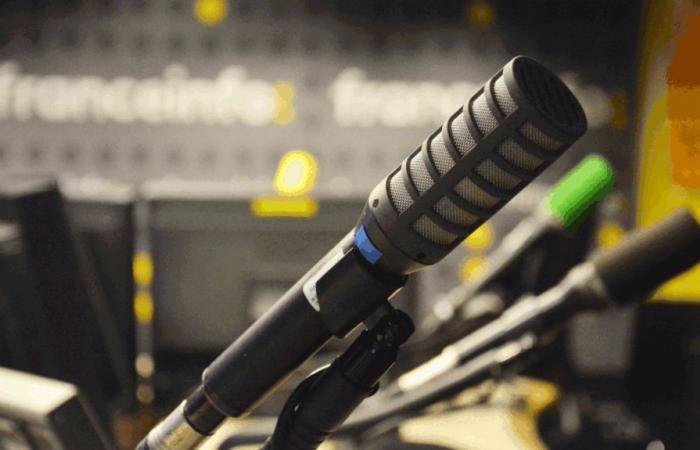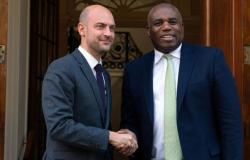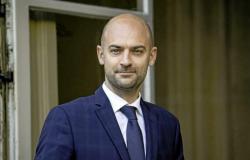Today we are talking about the trial of the assistants of MEPs from the National Rally, tried before the Paris criminal court. Before November 13, the day of the indictment of the two prosecutors, we received messages from listeners who were surprised not to hear much about this trial. Here is one of the messages: “I am stunned by the lack of coverage of the trial of the parliamentary assistants of the National Rally. Can you enlighten me on this editorial choice of not informing us about this trial?” Details from Florent Guyotat, deputy editorial director of franceinfo.
Emmanuelle Daviet: Florent Guyotat, what do you say to these listeners and what resources have you mobilized to ensure coverage of this trial?
Florent Guyotat : I think that the feelings of these listeners, and I am sorry that they feel like that, do not reflect the reality of the coverage of this event on our channel. Already, there is a first point for the opening of the trial. It was last Monday, September 30. We mobilized our two specialists on the file, Pierrick Bonno and Yannick Falt, in the morning. So at prime time, for lengthy explanations, we tried to explain in detail what Marine Le Pen and the other defendants were accused of, and also of course, the way in which they defended.
Also at midday, September 30. There were long sequences on the air, live from the court dedicated to the opening of this trial, always with our specialists, Yannick Falt from the police justice department, and Pierrick Bonno from the franceinfo political department, who is in charge of the coverage of the National Rally.
So you will tell me, one of the criticisms that could be made of us is basically that we talked a lot about this trial at the opening, but then deserted the courtroom, during the weeks that followed. This is not the case at all, really, I assure you. I did the accounts.
Moreover, since the trial opened at the end of last September, we have covered a total of 11 days of hearings, i.e. more than every other day, each time with precise reports of what was said during the hearings. debates. So my feeling, my conviction, is that our coverage was adequate. Especially since next week, we will be in the courtroom again with our special envoys to listen to the defense pleadings.
We continue with this question. On Wednesday, November 13, the prosecution requested five years in prison, including two years in prison subject to change, a €300,000 fine and five years of ineligibility against Marine Le Pen.
And following this indictment, listeners are surprised to have essentially heard Marine Le Pen's defense of Marine Le Pen. I read you a message: “I believe this is the first time I have heard on television, then on the radio, an accused, certainly presumed innocent, defending her case and practically imposing her point of view in the media. In this case, why not give a voice to anyone accused of a crime, presumed innocent, since there are several high-profile trials currently underway? Why not directly invite these people to come on the radio, defend their case and appear as victims unjustly harassed by the justice system, under the pretext that these people have a political or other future?”
Florent Guyotat, what do these reactions inspire in you?
On franceinfo, as in other media such as in democratic life, quite simply, there is a fundamental principle, which is that the defense has the right to speak, whatever the subject, and whatever is the matter dealt with. So yes, on the evening of Wednesday November 13, on franceinfo, at the end of the indictment, which you have just spoken about, we broadcast, live, the reaction of Marine Le Pen, as she left the courtroom. It was around 8 p.m. Word to the Defense therefore. But also speak to the complainants, since a few moments later, still on franceinfo, it was the lawyer of the European Parliament, Patrick Maisonneuve, whose declaration we broadcast.
Pluralism respected therefore on franceinfo, I specify that the day after these interventions, the two parties were again invited live on our antenna. Bruno Gollnisch, member of the RN, one of the defendants in this trial, and again Patrick Maisonneuve, the lawyer for the European Parliament, were invited, therefore live on franceinfo for equivalent durations of around six minutes each. I also point out, it is important that for the moment, we are only talking about requisitions. We will see what the final decision of the court will be next January precisely.
We end with this remark from a listener who wrote to us : “We haven't really heard any clear explanations about the fact that this is a trial concerning Europe which is being held in France. It's difficult to understand, and the upcoming verdict will not be easy to understand either, with the risk of vague interpretations.”
What were your editorial choices to explain this trial and its consequences?
So, for this trial as for others, there again, there is a fundamental principle, which is that we begin by explaining the facts, what is accused, what is said during the debates. Then, obviously, we give the floor to all the participants in the discussion in the courtroom. And then finally, of course, there are the reactions and interpretations that everyone can make of it. But first, it's always time for the facts, first and foremost.






